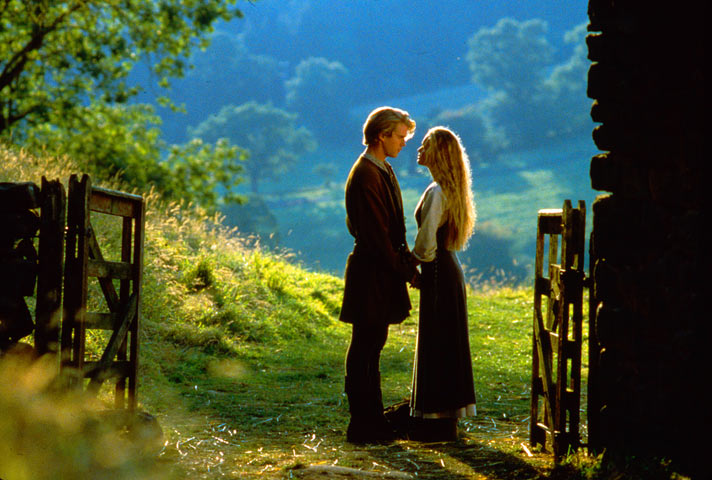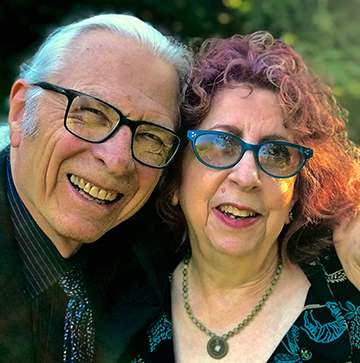The Unfettered Critic – November 2017
May we get personal here? We have a tale to tell.
Many of you know writer William Goldman for his Academy Award-winning screenplays to Butch Cassidy and the Sundance Kid, and All The President’s Men. None of his work, however, is remembered as fondly as his story of Buttercup and Westley. He wrote the beloved fantasy romance The Princess Bride as a present to his two young daughters. It soon became a present to us all. And we, your critics, got to peek into a corner of the package.
Goldman wrote his novel in 1973. One of us—Terry here—read and loved it, and bought numerous copies for friends. Meanwhile, Goldman (unknown to me, of course), had turned his story into a screenplay. Several film studios, we later learned, were interested in producing it, but only if he eliminated the “strange” scenes of a grandfather reading the fantasy to his grandson. Goldman refused, calling those scenes essential.
The screenplay floated around Hollywood. In 1979, I (Terry again) was working in the Columbia Pictures Story Department (where potential screenplays come in). One day an agent submitted a screenplay—The Princess Bride! I was thrilled. The delivered copy clearly had been around. It was bent, stained, and the cover boasted a rejection stamp from Universal Pictures. I raced with it to my boss, who liked it. But the Columbia brass rejected it.
Goldman, meanwhile, wasn’t giving up. At one point, director Richard Lester (A Hard Day’s Night) wanted to direct. At another, actor Christopher Reeve (Superman) wanted to play Westley. Neither happened. Then Goldman met Rob Reiner—“Meathead” from All in the Family. Reiner had formed a production company. He loved the screenplay, and managed to finance the production. It was now early 1987, and I (Terry again) was working as a publicist for Twentieth Century Fox Pictures. One day I learned that Twentieth had made a distribution deal with Reiner—and I was assigned to the promotion team. Chills, you might say.
The movie opened as a modest hit. Critics said things like “…engaging…” and “…works well enough.” The studio, as with all films, let The Princess Bride slowly fade. But it didn’t. Fans began quoting lines from it, like “You killed my father. Prepare to die.” At the studio, we learned that the Science Fiction Writers of America, who yearly present “The Hugo Awards,” had nominated The Princes Bride for “Best Dramatic Presentation.” And I was chosen to attend the ceremony, at the World Science Fiction Convention in Atlanta, GA. Paula (she gets to enter the story here) and I flew down, hopeful, but aware of our serious competition: Robocop, Predator, The Witches of Eastwick, and the pilot to a new TV show, Star Trek: The Next Generation.
In a ballroom filled with people, we waited as awards were given for: Best Novel; Best Short Story; Best Artist; Best Editor. Then the announcer said: “The Hugo Award for Best Dramatic Presentation goes to—The Princess Bride.” I kissed Paula, ran to the stage, accepted the rocket ship shaped statuette, and mumbled a spontaneous speech. I have no idea what I said, but Paula insists it was “fine.”
I carried the award, wrapped in a hotel towel, back to L.A. where I delivered it to Rob Reiner’s office. A secretary casually accepted it—and I went back to work.
Love for The Princess Bride has never faded. The book has never gone out of print. This month marks the 30th Anniversary of the movie’s release. I asked Paula if I could tell our tale.
She responded: “As you wish.”
Featured image: Cary Elwes and Robin Wright in The Princess Bride. Photo courtesy of Castle Rock Entertainment.

 Paula and Terry identify as writers, with an ever-increasing number of published works to support the supposition. They live a primarily pastoral life in the enchanted town of Jacksonville.
Paula and Terry identify as writers, with an ever-increasing number of published works to support the supposition. They live a primarily pastoral life in the enchanted town of Jacksonville.